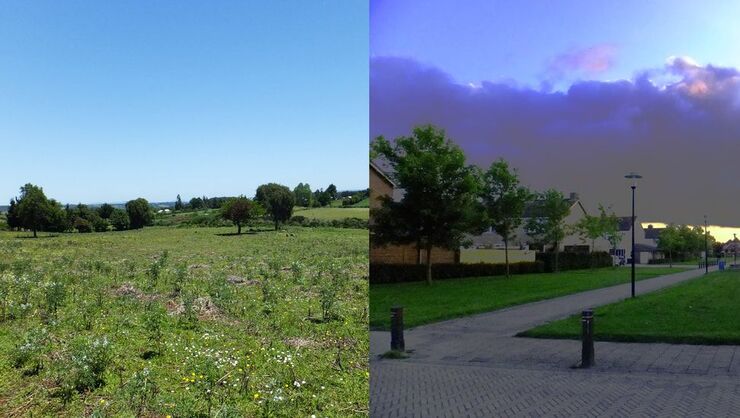|
|
|
When Rafael Railaf told me the story of his land in Southern Chile and his fight for it, I asked him, with some uncertainty, what moved him to a struggle that eventually led to two years of political prison and subsequent exile. He was silent for a few moments, and than said: ‘Porqué yo siento un dolor’ ('Cos I feel a pain).
Rafael’s narrative around the object of land has multiple layers that began to emerge when he connected it with ‘pain’. His statement pointed at the links between the materiality of places, politics and the existential dimension of lived experience. At the same time, it drew my attention to the borders that exist between persons in relation to speech and silence, for my understanding of the word ‘land’ (tierra) and what it actually meant for Rafael could only be partial: it was impossible for me to feel and think that word the way he did. This awareness was the starting point for the writing of my Identities article ‘Unexpected Places: Land, words and silence in a Mapuche family trajectory of (dis)placement’, which elaborates on the interplay between words and silence as something not only in the construction of narratives, but also in the making of (unexpected) places at the crossroad of different and interconnected landscapes.
Rafael Railaf was one of the indigenous Mapuche leaders of the Movimiento Campesino Revolucionario – MCR (Peasant Revolutionary Movement) during the 1960s and early 1970s. After the brutal coup of General Augusto Pinochet Ugarte he was forced into exile with his family. They were received as political refugees in The Netherlands in 1977, where most of them still live today. While I was working on Mapuche exile in Europe during Pinochet’s military dictatorship (1973–1989) and its aftermaths, the history of the Railaf Zuñiga soon took a centre stage in my research. Between 2012 and 2013 I engaged in the co-construction of the family biography with them, with a closer focus on the ways in which people negotiate their position in the world when caught in processes of displacement and emplacement. My Identities article follows their routes between Southern Chile and The Netherlands, from the late 1960s until 2012.
Following a non-linear path that entangles multiple spatialities and temporalities, Rafael’s and his family history are about how ‘land’ is connected with ‘pain’. Interrogating how they have engaged in the process of dwelling in the elsewhere, the disruptive experience of exile is addressed as a condition of being, a tension between presence and absence that is negotiated through words and silence. While exile means a forced reconfiguration of one’s self and one’s world, emplacing oneself in displacement is a painful yet creative process in which people carry with them bits and pieces of their lost landscapes. Trusting glanced affinities and ‘family resemblances’ in the interconnection with and through different places, this fundamental move resembles the practice of translation: Rafael’s wife Rosa begun to feel home when she became fluent in Dutch and got used to drinking coffee instead of mate. She could finally call her colleagues at the local Emmaus for their mid-morning break: kom binnen, koffie drinken (come inside, drink coffee). The process of ‘worlding’ comes together with that of wording: dwelling in the elsewhere involves stitching together the torn fabric of space-time as much as that of language. Home-making thus represents a practice of dwelling that undertakes temporal and spatial elsewheres, involving issues of imagination and space production, as the lost land – shaped by and re-invented in other spaces - becomes somehow present, leading to the meaningful emergence of what I call ‘unexpected places’.
Blog post by Olivia Casagrande, The University of Manchester, UK
Read the full article: Casagrande, Olivia. Unexpected places: land, words and silence in a Mapuche family trajectory of (dis)placement. Identities: Global Studies in Culture and Power. DOI: 10.1080/1070289X.2020.1725310
0 Comments
Your comment will be posted after it is approved.
Leave a Reply. |
|
Explore Identities at tandfonline.com/GIDE |
|
The views and opinions expressed on The Identities Blog are solely those of the original blog post authors, and not of the journal, Taylor & Francis Group or the University of Glasgow.

